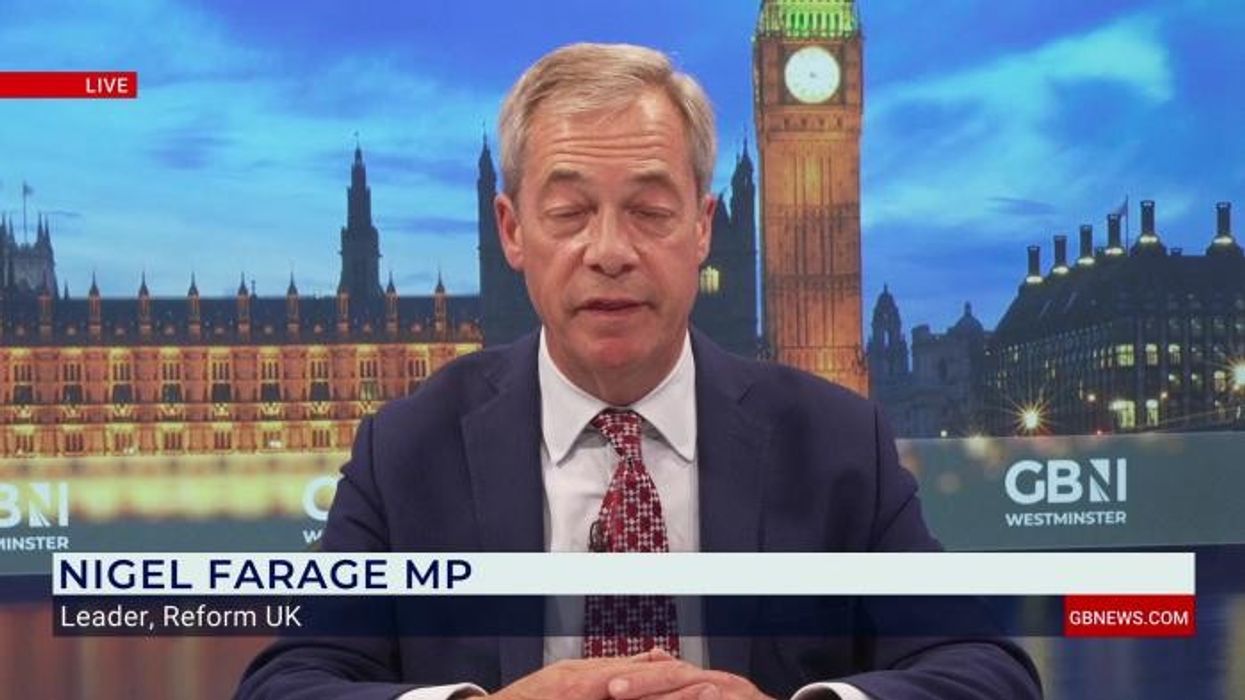Landlords could be forced to forgo rent for 12 months under Angela Rayner's housing crackdown

@Nigel_Farage wades in on the Government's Renters' Rights and Employment Rights bills. He asks whether the legislation will improve the lives on ordinary people. |
GBNEWS

The re-letting ban extends the Conservative policy from three months to twelve, raising fears of a rental supply crunch
Don't Miss
Most Read
Labour's rental overhaul could leave landlords unable to collect income for up to twelve months in some cases, experts have warned.
The proposals introduce new barriers to re-letting homes after failed sales, triggering warnings from across the property sector.
Angela Rayner's Renters' Rights Bill is a piece of upcoming legislation designed to deliver "long overdue" reforms to the Private Rented Sector (PRS). Its primary goal is to give tenants more security to stay in their homes and more freedom to leave substandard properties.
The Bill, which is now just one parliamentary vote from becoming law, would ban landlords who evict tenants to sell their property from re-listing it as a rental if the sale falls through.
The re-letting ban would last for up to a year, quadrupling the Conservatives’ original three-month rule.
Industry leaders say the changes risk further reducing rental supply and driving landlords out of the market, just as demand continues to surge.

Landlords could be forced to forgo rent for 12 months
|GETTY
The tougher restrictions are part of Labour's broader effort to reform housing, abolish no-fault evictions, and create open-ended tenancies.
Under the proposed rules, landlords must provide tenants with at least four months' notice before evicting them for the purpose of selling their property.
Additionally, a twelve-month "protected interval" at the beginning of any tenancy would prevent landlords from evicting tenants to sell during this initial period.
Nathan Emerson, chief executive of Propertymark, explained that "should a landlord choose to sell the property in question, they will be restricted from re-letting that property for a period of 12 months after evicting the tenant, should the property not sell".
This combination of requirements creates multiple layers of restrictions that could significantly impact landlords' flexibility in managing their properties.
Emerson warned that "this may in some circumstance cause a degree of property vacancy, in an already pressurised situation where supply is greatly required".
The chief executive's comments highlight concerns that the reforms could exacerbate existing housing shortages by creating periods where properties sit empty whilst landlords navigate the new restrictions.
Chris Norris, chief policy officer for the National Residential Landlords Association (NRLA), said: "Whilst we understand the Government wants to prevent abuse of the new tenancy systems, the country cannot afford to have homes standing empty for months on end.

Industry representatives argue that the extended timeframes could discourage landlords from entering or remaining in the rental market
| PA"Around a third of property sales fall through before completion, mostly as a result of problems faced by the buyer. Given the scale of the housing crisis, it cannot be right that homes will be left empty for many months even when landlords are not to blame when a house sale fails to progress."
Industry representatives argue that the extended timeframes could discourage landlords from entering or remaining in the rental market, particularly given the financial risks of maintaining empty properties without rental income.
A Ministry of Housing, Communities and Local Government spokesperson said: "Our landmark Renters’ Rights Bill will bring long overdue fairness to the market by making sure it is unprofitable for landlords to evict a tenant and deprive them of their home, just so they can rent to new tenants at a higher price."
The property sector has repeatedly cautioned that increasingly stringent regulations are pushing landlords out of the market, reducing profit margins and making property letting financially unviable for many.

The proposed reforms arrive at a critical juncture for the rental sector
| PAThe UK rental market faces severe supply constraints, with available properties reaching an all-time low of just 284,000 in March. This figure represents a 23 per cent decline compared to pandemic levels, when the market experienced significant disruption.
The proposed reforms arrive at a critical juncture for the rental sector, where demand substantially outstrips supply across much of the country.
Key changes proposed in the Bill include:
- Abolish fixed-term assured shorthold tenancies (ASTs) - as a result of this, all tenancies will become periodic
- Limit rent increases - the shift to periodic tenancies means Section 13 notices will be the only way for landlords to raise the rent; these can only be served once per year
- Abolish Section 21 evictions - landlords will no longer be able to serve "no-fault" notices to regain possession of their properties
- Expand Section 8 possession grounds - the Government is adding and updating both mandatory and discretionary grounds due to the abolition of Section 21
- Ban rental bidding wars - landlords and agents can’t accept offers above the advertised price
Experts believe the Renters' Rights Bill is likely to come into effect between Oct 2025 - Jan 2026.
More From GB News










